Oh to have been a fly on the wall at the Palace. “Your Majesty, we’ve had a request from a Mr Boyle. It concerns the Opening Ceremony of the Olympic Games.” “I’m already opening the blessed thing, aren’t I? What else do they want?” “Ma’am, they just want you to be yourself.”
Enter Daniel Craig, greeted by corgis and flunkies, ushered along lushly carpeted corridors into an inner sanctum. The entire planet will have had the same thought at the same moment. They haven’t gone and got the Queen to play ball? “Good evening, Mr Bond,” suggested Her Majesty, before apparently following 007 into a chopper and then leaping by parachute out over the Olympic Park.
Can anyone imagine the French taking the piss out of themselves?
To anyone scrutinising his back catalogue, Danny Boyle may well have looked like an odd choice to deliver an Olympic opening jamboree. Characters in his previous films include junkies, murderers, drug lords, thieves plus a mountaineer who saws his arm off. Say what you like about the rest of it, but adding our sovereign to his dramatis personae was the sort of coup that could only happen in a country with a strong enough sense of identity to allow for self-mockery. Can anyone imagine the French taking the piss out of themselves, let alone the Chinese? Or indeed any other culture which sits at history’s top table?
That set the marker for Boyle’s Opening Ceremony. Four years ago the moneybags in Beijing attempted to batter its global audience into submission. In London, Boyle attempted something supremely different: to seduce the world with wit and even - oddly given the context - modesty. Unlike its 2008 predecessor, this opening ceremony laid careful stress on what we like to think of as the British virtues: individual genius, imaginative flair and freedom of expression.
 Of course it’s not easy to sell a gag on a stage to 80,000 in the stadium and a further billion watching at home, using a 7,500-strong volunteer army plus a few celebs. Boyle summoned an eclectic cast list of British superstars to help push his vision of Brand Britain, most of them doing several jobs at once. Sir Kenneth Branagh as Isambard Kingdom Brunel channelled The Tempest. JK Rowling cited JM Barrie. The Arctic Monkeys (having first introduced themselves with a fearful racket) played John Lennon and Paul McCartney played "Hey Jude". Sir Simon Rattle conducted Mr Bean who wandered dreamily off to the beach at St Andrews to out-sprint the chaps from Chariots of Fire. Evelyn Glennie, a one-woman riposte to Beijing’s jumbo percussion section, pulsed out rhythms.
Of course it’s not easy to sell a gag on a stage to 80,000 in the stadium and a further billion watching at home, using a 7,500-strong volunteer army plus a few celebs. Boyle summoned an eclectic cast list of British superstars to help push his vision of Brand Britain, most of them doing several jobs at once. Sir Kenneth Branagh as Isambard Kingdom Brunel channelled The Tempest. JK Rowling cited JM Barrie. The Arctic Monkeys (having first introduced themselves with a fearful racket) played John Lennon and Paul McCartney played "Hey Jude". Sir Simon Rattle conducted Mr Bean who wandered dreamily off to the beach at St Andrews to out-sprint the chaps from Chariots of Fire. Evelyn Glennie, a one-woman riposte to Beijing’s jumbo percussion section, pulsed out rhythms.
The guide notes handed out to the world’s media will have carefully stressed Glennie’s conquest of disability. Deaf children, meanwhile, serenaded the Queen with a National Anthem which they simultaneously signed. The theme running through the entire show was all about how multi-ability Britain, multicultural Britain, multitalented Britain gave us Shakespeare, the Industrial Revolution, The Beatles, Harry Potter and the world wide web (take a bow, Sir Tim Berners-Lee).
It’s quite a complex message to try and push in just over an hour, with a 21st-century austerity budget. The potted history of our sceptred isle - our isles of wonder, to fall in with Boyle's language - began at the source of the Thames and sped along the famous waterway to today’s Tower Bridge hung with five rings. Four iconic songs sung by children’s choirs linked the four nations - “Danny Boy” on the Giant’s Causeway, “Flower of Scotland” in Edinburgh Castle, “Cwm Rhondda” with the Worm’s Head of the Gower Peninsula for a backdrop - all bookended by “Jerusalem” in the stadium. (Elgar's "Nimrod" was also required to put in a carthorse's shift.) And sure enough, the pastoral paddock of pre-industrial Britain full of gambolling sheep and quacking geese in the shadow of a mocked-up Glastonbury Tor was soon ripped up by the advance of the Industrial Revolution.
 Maybe it’s no accident that the most confident moment in our history was matched by storytelling bold in its clarity. In the night’s most dazzling use of stage machinery, up out of the stadium floor sprouted half a dozen dark satanic mills to usher Britain into its age of prosperous domination and forge five rings which interlocked spectacularly. A mass danceathon illustrating the role of children’s literature was less successful at selling a more subtle, amorphous claim: that we care for our sick and set free the imagination of our youth. To illustrate this, we had a giant Voldemort assailing a field of children at bedtime, only to be thwarted by an army of Mary Poppinses arriving from the sky. Dance was more simply - not to mention blandly - deployed in the story of a youthful, ethnically diverse Britain reborn in the 1960s to the strains of great pop and good telly.
Maybe it’s no accident that the most confident moment in our history was matched by storytelling bold in its clarity. In the night’s most dazzling use of stage machinery, up out of the stadium floor sprouted half a dozen dark satanic mills to usher Britain into its age of prosperous domination and forge five rings which interlocked spectacularly. A mass danceathon illustrating the role of children’s literature was less successful at selling a more subtle, amorphous claim: that we care for our sick and set free the imagination of our youth. To illustrate this, we had a giant Voldemort assailing a field of children at bedtime, only to be thwarted by an army of Mary Poppinses arriving from the sky. Dance was more simply - not to mention blandly - deployed in the story of a youthful, ethnically diverse Britain reborn in the 1960s to the strains of great pop and good telly.
To round off the main pre-parade entertainment, Akram Kham presented an expressive dance annotating the horrific impact of 7/7, which came a day after London won the bid to host the Olympics and whose victims had earlier been honoured in a moment of silence. Later, after all the athletes had waved to their heads of state who waved back, and the IOC's tax-dodging kleptocrats had spread their message of peace, harmony and fat foods for everyone, winged doves entered on bicycles and one even took flight. This hectic, crowded, well-meaning and multi-purpose ceremony took off often enough, but was as frequently kept earthbound by the gremlins which are always in the works on these occasions. Unless you go down the Beijing route, there is no marrying the intimate and the personal on the one hand, and the epic on the other, for two quite different audiences, using massive props and thousands of tiny players, however enthusiastically everyone drums and dances.
Any opening ceremony is required to be an oxymoron. A meaningful jamboree. A thrilling exercise in brand management. A square peg in a round hole. That the task was given to an individual will strike anyone who knows the place as British to the marrow. Quite what the watching billions made of hasty references to EastEnders and the NHS, to Gregory’s Girl and cricket, is anyone’s guess. But these markers are currently, roughly - debatably - who we are and where we stand. Hello, world. Take us or leave us.






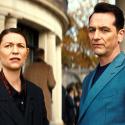
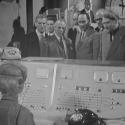


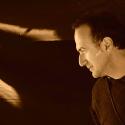
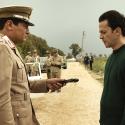
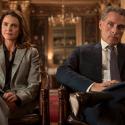

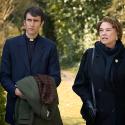
Add comment